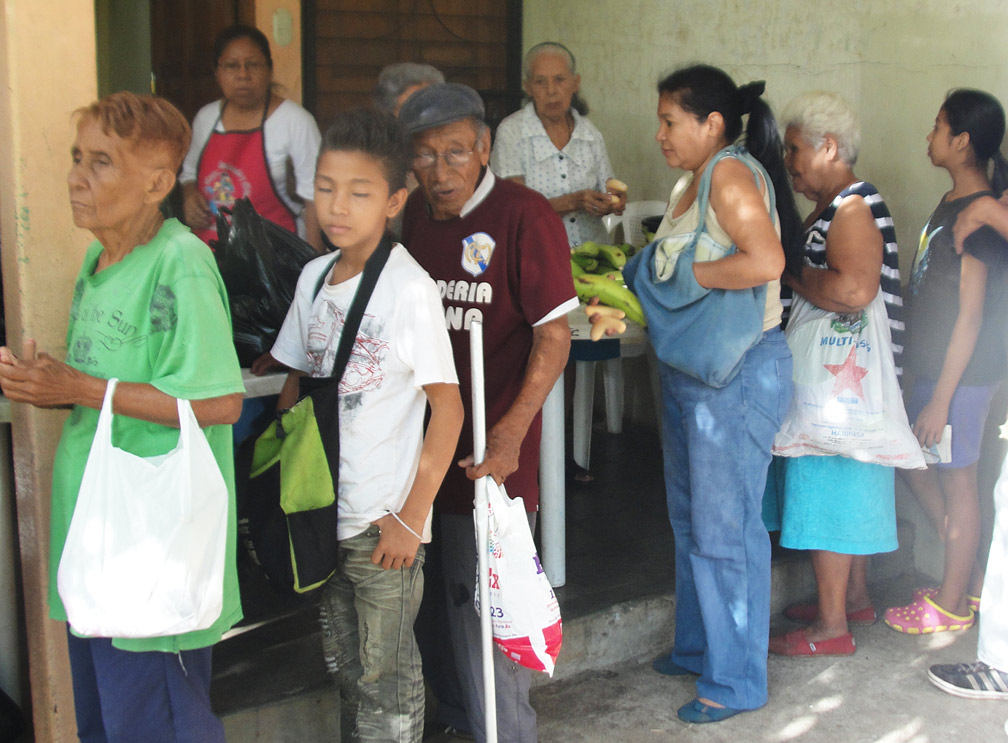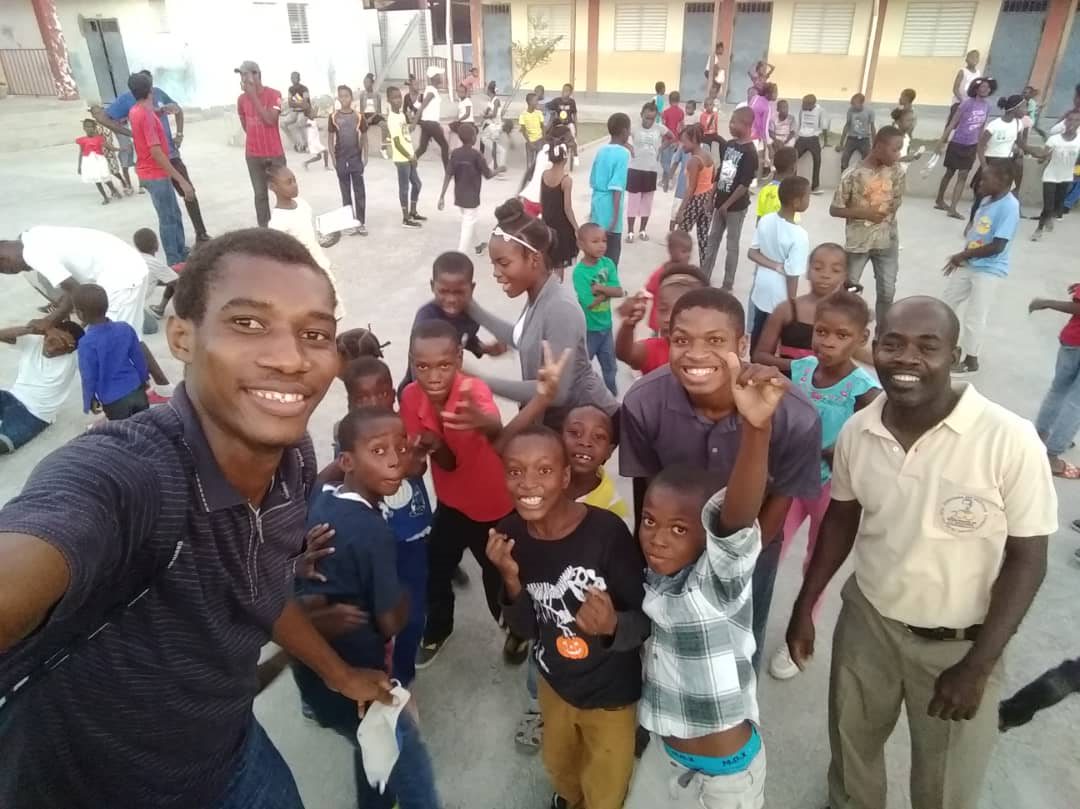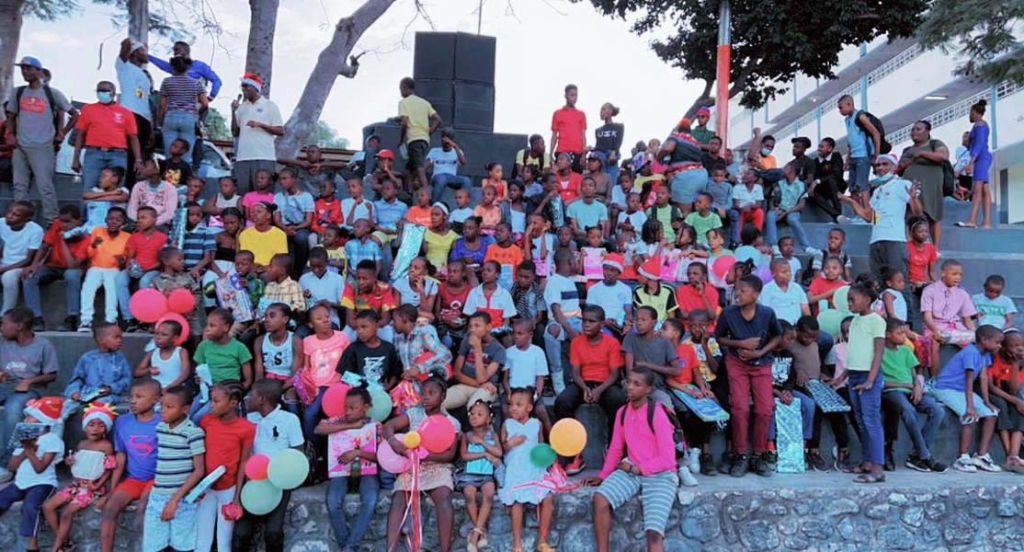NICARAGUA: Youth and Elderly Have Access to Better Nutrition Thanks to Recent Rice-meal Donation

(MissionNewswire) Youth and the elderly in Salesian programs in Managua, the capital and largest city in Nicaragua, have access to better nutrition thanks to an ongoing partnership between Salesian Missions and Feed My Starving Children, a non-profit Christian organization committed to, “feeding God’s children hungry in body and spirit.” The partnership has resulted in a rice-meal donation that has reached more than 500 beneficiaries in Managua including students at a Salesian-run primary and secondary school, girls at a Salesian boarding school and elderly members of a Salesian church congregation.
Every Monday, more than 80 low-income, mostly elderly people between 80 and 95 years of age, visit a Salesian church in Managua and are provided food and other assistance from the church community. Salesian missionaries in the community have noticed that since the rice-meal donation, the recipients’ strength and health as well as their mood has improved. Salesian Sisters who operate a boarding school for girls just outside the city also received part of the donation and provided the meals to their boarders who take classes in baking, sewing and embroidery in addition to academic courses toward a high school diploma. The added nourishment has had a significant impact on the girls’ ability to concentrate on their studies.
The primary recipients of the rice-meal donation were two Salesian schools in Managua, a kindergarten for young students 3-5 years old and a Salesian high school. Between the two schools, more than 200 students received better nutrition as a result of the donation. The rice-meals were provided to students during the school day as part of a free lunch program to ensure they receive proper nutrition and a balanced diet, helping them to focus on their studies and extracurricular activities. Salesian missionaries began the school feeding program to meet the needs of the many area families with limited resources to feed their children.
“Many of those participating in Salesian programs in Nicaragua are malnourished,” says Father Mark Hyde, executive director of Salesian Missions, the U.S. development arm of the Salesians of Don Bosco. “Meals children receive at Salesian schools may be their only meals. This food not only encourages them to attend school, it allows them to focus on getting the education they need without worrying about where their next meal will come from. Children cannot learn on an empty stomach.”
The ongoing partnership between Salesian Missions and Feed My Starving Children has resulted in 40-foot containers of fortified rice-meals being shipped to Salesian sites around the globe. Feed My Starving Children provides the food and Salesian Missions takes care of the cost and logistics of shipping each container from Feed My Starving Children warehouses to the destination country. Salesian Missions also works to help identify where the greatest needs are at any given time. The partnership began in early 2006 when the first 40-foot container was donated to and shipped by Salesian Missions for programs in Sri Lanka. Through the years, as Salesian Missions has determined beneficiaries in need of Feed My Starving Children food, almost 100 containers of more than 27 million meals have been donated, shipped and received by those in need in more than 25 countries.
“Salesian missionaries are an integral part of the existing infrastructure in many countries and Salesian Missions plays an important role in making sure aid from the United States reaches its destination country and gets into the hands of those who need it most,” adds. Fr Hyde. “Youth who access Salesian programs in Nicaragua are given an educational foundation, technical skill training and life and social skills to help them excel in the workforce. They are then able to break the cycle of poverty and become contributing members of their communities.”
Nicaragua is one of the least developed and poorest countries in Latin America, second only to Haiti, with more than 42 percent of its residents living in poverty, according to the World Bank. Poverty, although declining steadily in recent years, remains high. More than 80 percent of Nicaragua’s poor live in remote rural communities where access to basic services is a daily challenge.
After decades of political instability and vulnerability to natural hazards, the country has achieved a remarkable economic turnaround and is now focusing on innovative ways of reducing poverty. However, years of widespread poverty have taken their toll and many residents suffer from poor health conditions including HIV/AIDS. In addition, crime, violence against women, gang violence and high unemployment result in challenging economic and social conditions, particularly for young people and women.
###
Sources:
World Bank – Nicaragua




